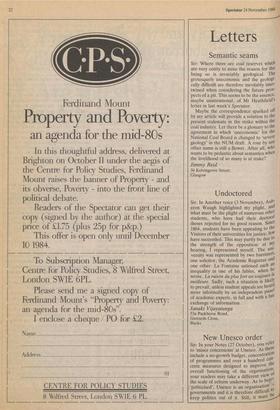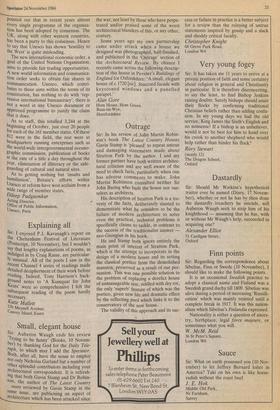New Unesco order
Sir: In your Notes (27 October), you refer to 'minor concessions' at Unesco. As these include a no-growth budget, concentration of programmes and over a hundred con' crete measures designed to improve the overall functioning of the organisation; your readers may take a different view. the scale of reform underway. As to ber • 'politicised', Unesco is an organisatiori ' governments and it is therefore difficult to keep politics out of it. Still, it mustj:ji
Pointed out that in recent years almost every single programme of the organisa- tion has been adopted by consensus. The UK, along with other western countries, has been a party to this consensus. Hence to say that Unesco has shown 'hostility to the West' is quite misleading.
The new international economic order, a goal of the United Nations Organisation, aims to provide fair trading opportunities. A new world information and communica- tion order seeks to obtain fair shares in communication. Unesco, which contri- butes to those aims within the terms of its constitution, has nothing to do with 'rep- ressive international bureaucracy': there is not a word in any Unesco document or approved programme to justify the claim that it does.
As to staff, this totalled 3,244 at the beginning of October, just over 20 people for each of the 161 member states. Of these 812 were in the field, the rest were at headquarters running enterprises such as the world-wide intergovernmental oceano- graphic commission, publication of books at the rate of a title a day throughout the Year, elimination of illiteracy or the safe- guarding of cultural and natural sites. As to getting nothing but 'insults and humiliation', Britain's efforts within Unesco at reform have won acclaim from a Wide range of member states. Ddeep Padgaonkar
Acting Director, Office of Public Information, Unesco, Paris























































 Previous page
Previous page